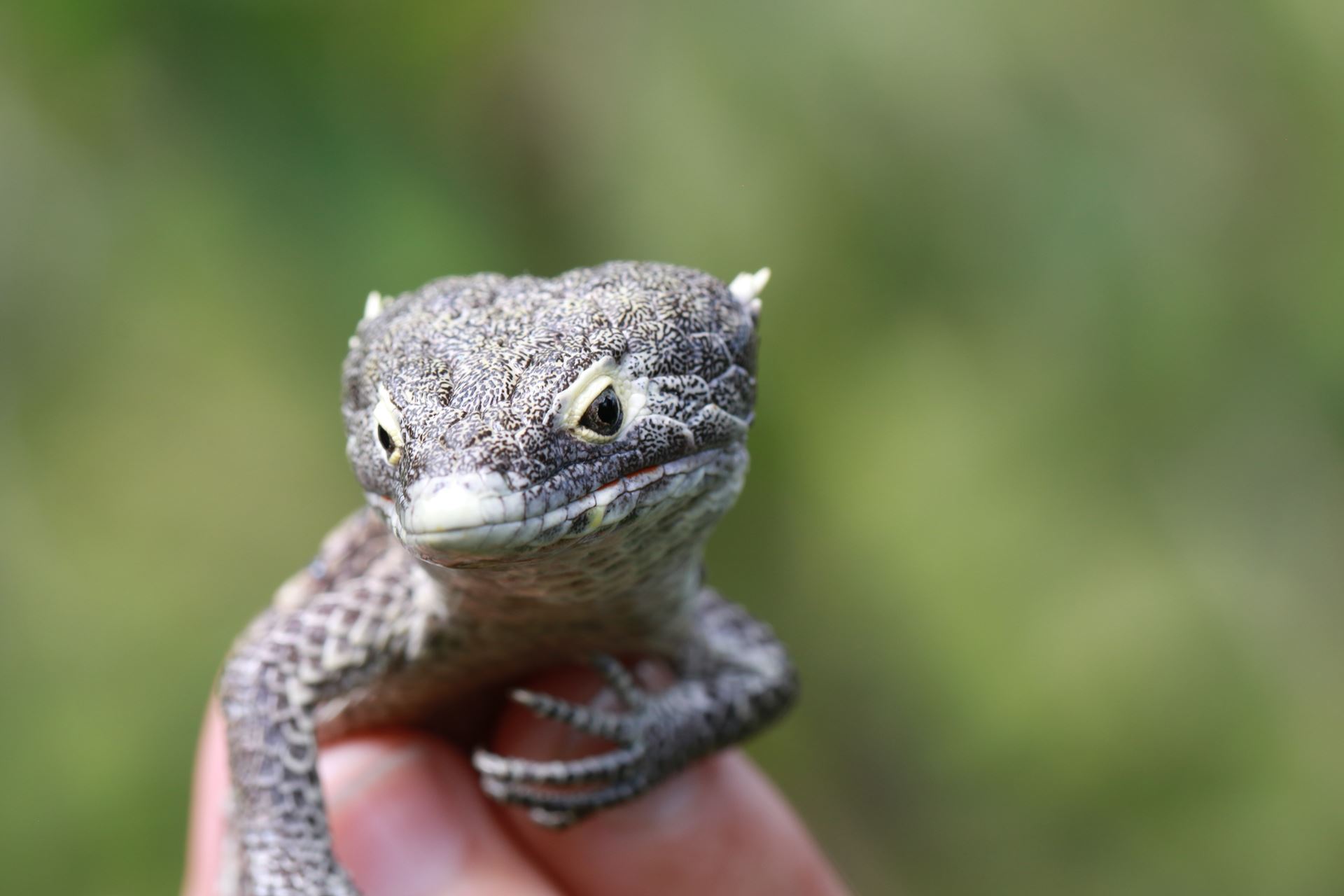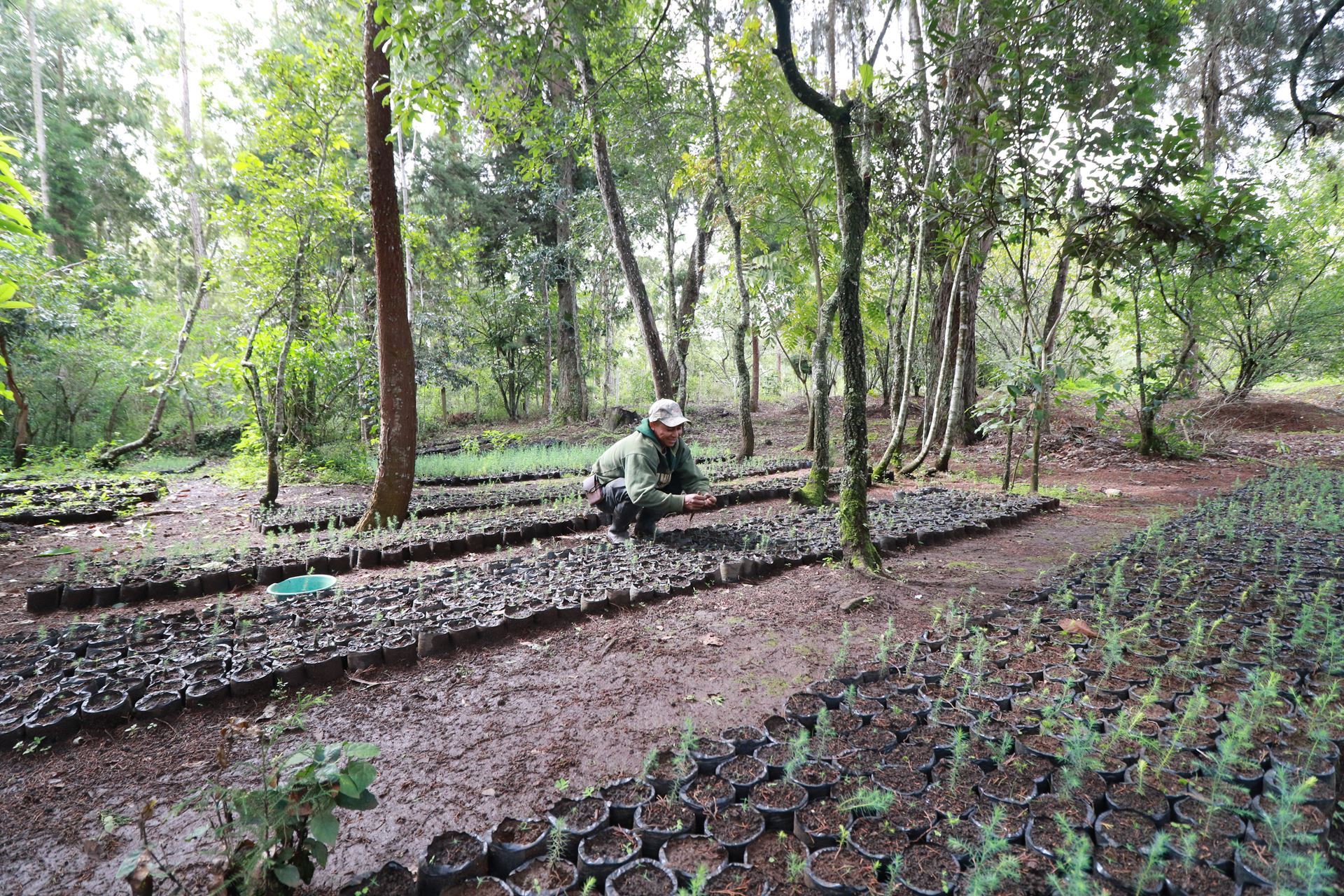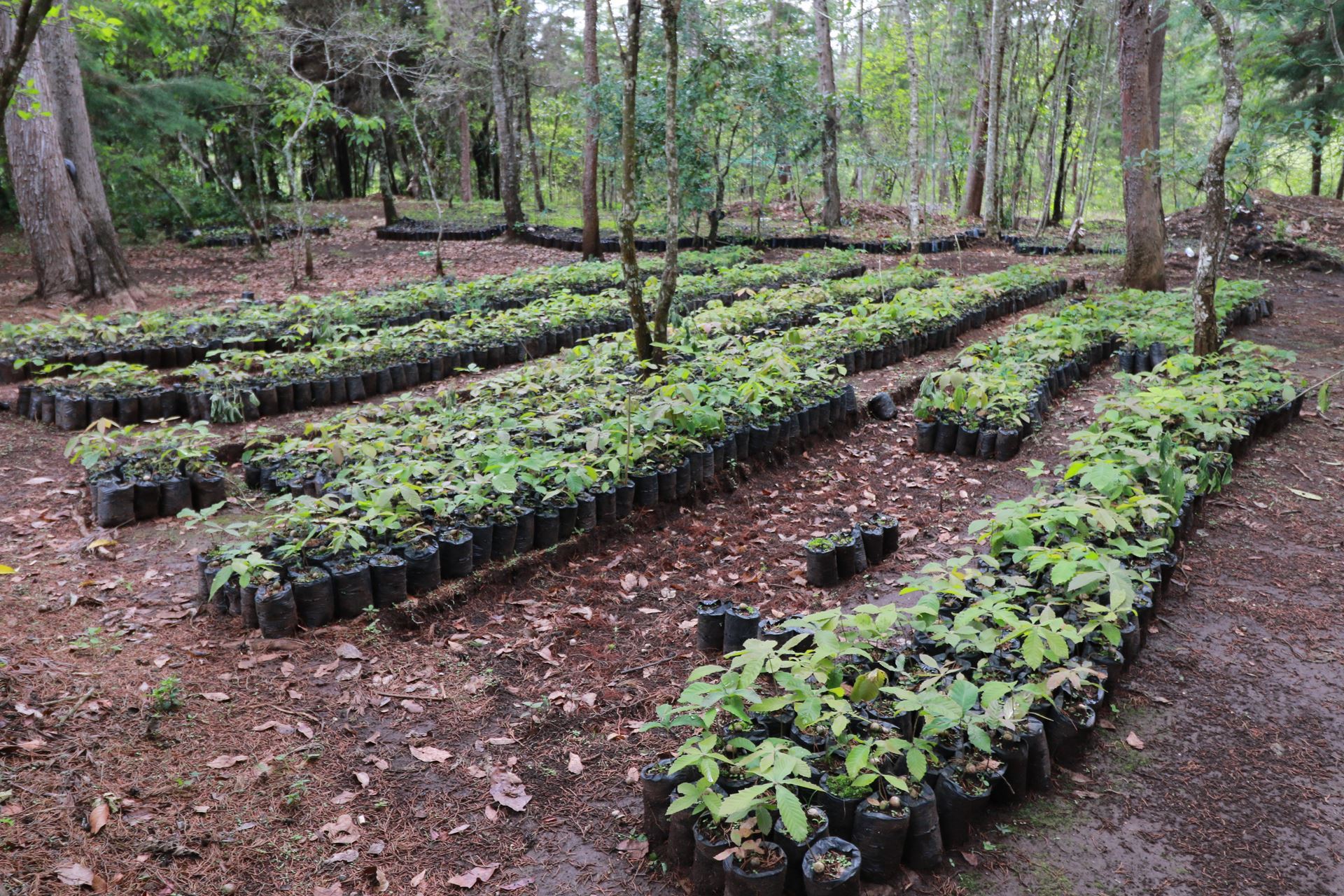The alligator lizard Abronia campbelli is considered the most threatened Abronia species in Guatemala. Campbell’s alligator lizard is critically endangered due to habitat degradation and destruction. Habitat loss affects many species around the globe, but the impact can be especially drastic for an arboreal species with a naturally restricted distribution as A. campbelli. Local land-use change has originated from three different fronts: livestock and agriculture on private farms, firewood consumption from surrounding communities and subsistence farming from local families. Based on this, our strategies include the creation of biological corridors on private farms, accompanied by the creation of community forests to remove pressure on habitat restoration areas.

With this project we begin to tackle the third component that drives habitat loss in the area: subsistence farming. We teamed up with 100 local families and turned a threat into a conservation opportunity. Now each smallholding used to grow food for a family will also serve to house biodiversity, reconciling local means of support with conservation. We believe that successful conservation is voluntary and locally driven, so our project focuses on making livelihoods compatible with the protection of biodiversity, resulting in long-term sustainable conservation strategies.
THIS IS WHAT WE ARE DOING
Progress
Our plan of action started with nursery maintenance actions designed to provide the native key forest species needed for the creation of the biological corridors. These activities consisted of seed collection, soil preparation, seed sowing, irrigation, fertilization, pest control and daily oversight to ensure general and ongoing care of the seedlings. Thanks to the support of Association of Zoological Horticulturists Conservation Fund and from the local community our nursery will produce approximately 15,000 seedlings exceeding the original project goal by more than 3 times.

We have completed the 8 Site Planning sessions with each of the families participating in our project. We visited the plot to plan and map the reforestation areas. During these activities we noted that family plots varied greatly in size, because of this the number of trees was customized to each family according to the size of the land and reforestation strategy.
Families responded to the project with great enthusiasm, wanting to participate with a wide variety of family owned plot sizes ranging from small yards at home (0.03 ha) to considerable land extensions (9 ha) within mountainous areas. Many families also had the desire to reforest their entire plot not just the edges, in order to create small forest patches.
We knew we had to rise to the occasion and harness the level of participation that we obtained from the community. We multiplied our efforts in the nursery, which resulted in an unexpected but satisfactory expansion of the objectives and goals of the project. This new goal will not only meet the level of local participation but also the necessary scope of actions necessary to ensure the resilience of A. campbelli.

Our habitat focused conservation work is accompanied by species reintroduction efforts through our captive breeding program. Right now, we are waiting for females to give birth, for families to liberate neonate A. campbelli in habitat remnants and in our previously reforested areas.
What is next
Build key allies in local communities through awareness-raising activities that culminate in tangible conservation actions, this is the foundation and key to the success of our conservation projects. However, the Conservation sessions, Nursery sessions and Conservation presentations in schools (all awareness activities in this project), are on hold since March due to the preventive measures against COVID - 19 imposed by the government of Guatemala. Social meetings are not allowed, schools are suspended, department borders are blocked, the country is under curfew and lockdown. We are in contact with families and local leaders to carry out the activities as soon as the situation changes. Due to the great progress in the other aspects of the project, we feel completely confident that when the restrictions in the country are lifted, we will achieve the project's goals and that the only change to the original plan will be in the scheduling of the activities.
We are also waiting for the start of rainy season in order to begin reforestation activities with the families. I addition we already have established alternative methodologies to be prepared in case the reforestation is carried out under restrictions due to COVID - 19.
Brad Lock, Oklahoma City Zoo